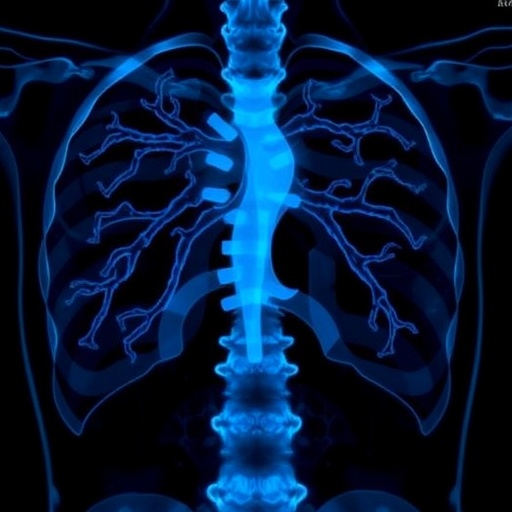In the realm of immunological disorders, the intricacies of activated PI3K delta syndrome (APDS) present a labyrinth of challenges both for patients and clinicians. This rare genetic condition has become the focal point of recent discussions, particularly due to its elusive nature and the diagnostic hurdles it imposes. The complexity inherent in APDS lies not only in its clinical manifestations but also in the genetic background that underpins the disorder. The syndrome primarily stems from mutations in the PI3KCD gene, which encodes the delta isoform of the phosphoinositide 3-kinase (PI3K) enzyme. This enzymatic dysfunction leads to a cascade of immunological failures, resulting in a spectrum of symptoms ranging from recurrent respiratory infections to lymphoproliferative disorders.
The various presentations of APDS can often mislead even the most seasoned practitioners. Patients may initially be misdiagnosed with common immunodeficiencies due to overlapping symptoms. This diagnostic confusion can result in inappropriate treatments, exacerbating the patient’s condition. Healthcare professionals and researchers are keenly aware of the need for heightened vigilance and education regarding the signs and symptoms of APDS to avoid such pitfalls. The nuances of accurately diagnosing APDS underscore the importance of a thorough clinical evaluation, genetic testing, and awareness of patient history.
A particularly compelling aspect of APDS is its presentation in varying phenotypes, adding layers of complexity to diagnosis and management. Affected individuals often display a combination of immunological abnormalities, including elevated levels of immunoglobulin E (IgE), increased eosinophils, and recurrent infections, particularly with encapsulated organisms. This varied symptomatology not only complicates the clinical picture but also demands a tailored approach to treatment, which might include immunoglobulin therapy, antibiotics, or even hematopoietic stem cell transplantation in severe cases.
Recent case studies, such as the one presented by Ahmad Shawaludin and colleagues, have highlighted the diagnostic pitfalls associated with APDS. Their analysis illustrates a rare instance where the syndrome was mistaken for other immunological disorders, showcasing the necessity for genetic testing to confirm the diagnosis. The case underlines the significance of interdisciplinary collaboration in the diagnostic process and the potential for genetic insights to revolutionize patient management in complex cases like APDS.
The implications of APDS extend beyond individual patients, as their experiences can provide valuable lessons in the recognition and management of rare immunological conditions. Observations from patients emphasized the critical need for healthcare providers to maintain a high index of suspicion when faced with recurrent infections and unusual clinical features. Moreover, increasing awareness about APDS within the medical community can lead to more timely diagnoses and improved patient outcomes.
In addition, the emergence of genetic research tools has provided unprecedented opportunities for advancing our understanding of APDS. Whole-exome sequencing and other genomic technologies have unveiled the genetic underpinnings of many rare conditions, including APDS. These innovations allow clinicians to identify specific mutations associated with the syndrome, enabling personalized approaches to treatment and the possibility of targeted therapies in the future.
Furthermore, the role of patient support and advocacy cannot be overstated in the context of APDS. Organizations dedicated to rare diseases have emerged, offering resources and a platform for affected individuals and their families to share experiences and seek guidance. This collective advocacy plays a vital role in raising awareness about APDS, fostering a sense of community, and driving research efforts that aim to uncover new treatment options.
As research progresses, the hope is that increased knowledge will translate into better care pathways for patients with APDS. Collaborative efforts among geneticists, immunologists, and clinicians will be crucial in crafting guideline-driven approaches that cater to the unique needs of APDS patients. This multidisciplinary engagement will also facilitate clinical trials, which are imperative for determining the efficacy of emerging therapies and refining existing treatment modalities.
The journey toward comprehensive understanding and management of activated PI3K delta syndrome is far from over. However, with ongoing research and increased awareness, there lies a promising horizon for affected individuals. Ultimately, the goal will be to diminish the diagnostic pitfalls that have historically plagued this condition, ushering in a new era of precision medicine that recognizes and addresses the complexities of APDS head-on.
In embracing this challenge, the medical community also acknowledges the crucial role that emerging technologies and research methodologies play in redefining the landscape of rare diseases. The continuous integration of novel genetic insights into clinical practice will ensure that patients receive tailored care that aligns with their specific genetic profiles, leading to improved health outcomes and quality of life. As researchers and clinicians forge ahead, the central question remains: how do we transform knowledge into practical application in the world of APDS and beyond?
Investing in research, bolstering clinical awareness, and nurturing patient advocacy will be foundational as we navigate the complexities of activated PI3K delta syndrome. This endeavor not only aims to enlighten the medical community regarding APDS but also strives to foster a world where every patient, no matter how rare their condition, receives the attention and care they deserve. As stories unfold and new findings emerge, the narrative surrounding APDS continues to evolve, ultimately positioning this rare syndrome at the forefront of genetic research and clinical innovation.
While challenges remain, the perseverance of researchers, healthcare providers, and patient communities stands as a testament to the human spirit’s resilience in the face of rare diseases. Through collaboration and shared knowledge, the once-mysterious landscape of activated PI3K delta syndrome becomes clearer, paving the way for transformative advancements in diagnostics, treatment, and overall patient care.
Subject of Research: Activated PI3K Delta Syndrome (APDS)
Article Title: A rare case report of activated PI3K delta syndrome (APDS): diagnostic pitfalls.
Article References:
Ahmad Shawaludin, M., Zainudeen, Z.T., Taib, F. et al. A rare case report of activated PI3K delta syndrome (APDS): diagnostic pitfalls.
BMC Pediatr 25, 898 (2025). https://doi.org/10.1186/s12887-025-06286-0
Image Credits: AI Generated
DOI: https://doi.org/10.1186/s12887-025-06286-0
Keywords: Activated PI3K delta syndrome, immunological disorders, diagnostic challenges, genetic mutations, patient care, precision medicine.




